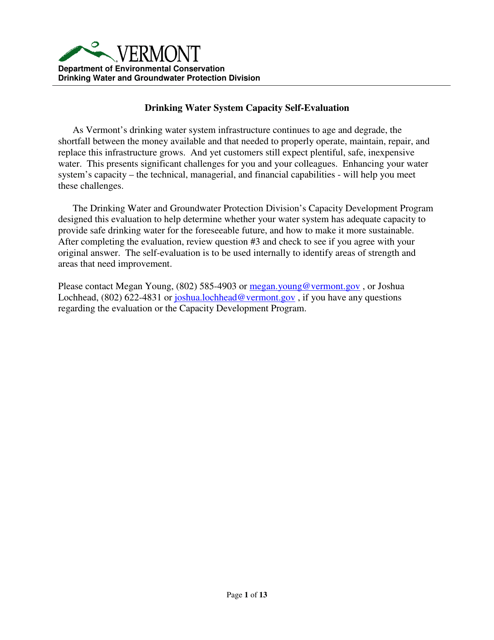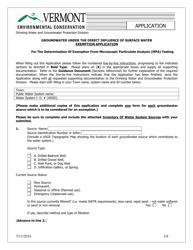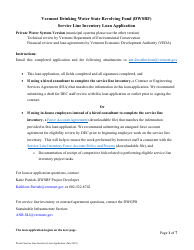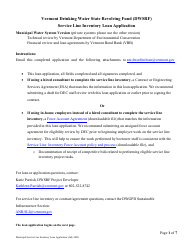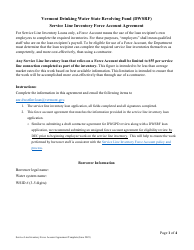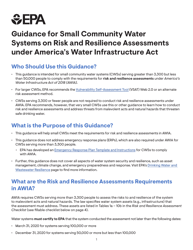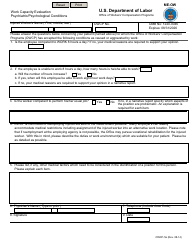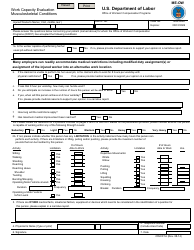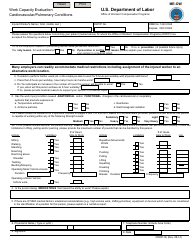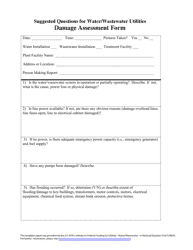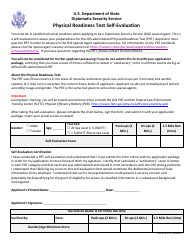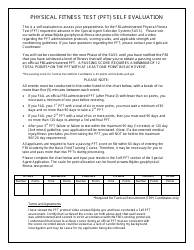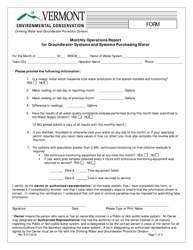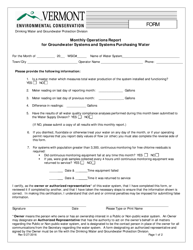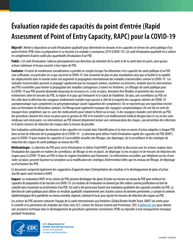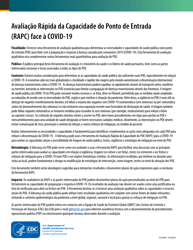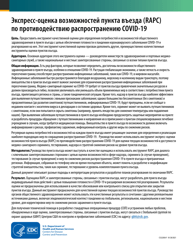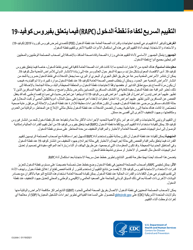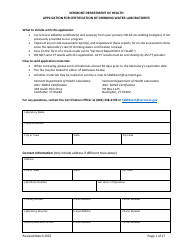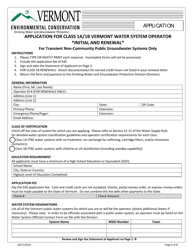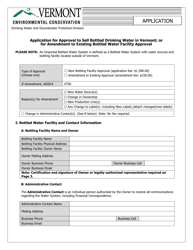Drinking Water System Capacity Self-evaluation - Vermont
Drinking Water System Capacity Self-evaluation is a legal document that was released by the Vermont Department of Environmental Conservation - a government authority operating within Vermont.
FAQ
Q: What is a self-evaluation for drinking water system capacity?
A: A self-evaluation for drinking water system capacity is an assessment conducted by the owner or operator of a water system to determine if the system has the capacity to meet the demands of its consumers.
Q: Why is self-evaluation important for drinking water systems?
A: Self-evaluation is important for drinking water systems to ensure that they have sufficient capacity to provide clean and safe water to their consumers.
Q: What does a self-evaluation for drinking water system capacity involve?
A: A self-evaluation for drinking water system capacity involves assessing factors such as water source capacity, treatment capabilities, storage capacity, and distribution system capacity.
Q: Who is responsible for conducting a self-evaluation for drinking water system capacity?
A: The owner or operator of a water system is responsible for conducting a self-evaluation for drinking water system capacity.
Q: What are the benefits of conducting a self-evaluation for drinking water system capacity?
A: Benefits of conducting a self-evaluation for drinking water system capacity include identifying potential system deficiencies, planning for future growth, and ensuring compliance with regulations.
Q: Are drinking water systems in Vermont required to conduct self-evaluations?
A: Yes, drinking water systems in Vermont are required to conduct self-evaluations as part of their compliance with state regulations.
Q: How often should a drinking water system in Vermont conduct a self-evaluation?
A: In Vermont, drinking water systems should conduct a self-evaluation at least once every five years, or more frequently if significant changes occur.
Form Details:
- Released on January 1, 2015;
- The latest edition currently provided by the Vermont Department of Environmental Conservation;
- Ready to use and print;
- Easy to customize;
- Compatible with most PDF-viewing applications;
- Fill out the form in our online filing application.
Download a printable version of the form by clicking the link below or browse more documents and templates provided by the Vermont Department of Environmental Conservation.
